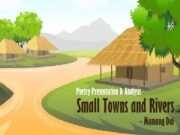Verbs play very important role in English. It is an important part of our vocabulary. They form two main categories- the Affirmative and the Negative.
Affirmative
- Affirmative is the opposite of being negative or contradicting
- Affirmative is approving something
- Affirmative words favour a proposition or motion
- Affirmative is a formal way to say ‘Yes’
- Affirmative is a positive declaration of something
Negative
- Negative is the expression of negation or denial
- Negative is refusing or disapproving something
- Negative is reverse impression of something
- Negative is a formal way to say ‘No’
- Negative indicates negation, using the words like no, not, never, none, nay, neither etc.
Practice Examples:
Transform Affirmative to Negative:
- She visits her grandparents regularly.
Ans: She does not visit her grandparents regularly. - They study French at the language school.
Ans: They do not study French at the language school. - I like coffee in the morning.
Ans: I do not like coffee in the morning. - We watch TV after dinner.
Ans: We do not watch TV after dinner. - He plays tennis every weekend.
Ans: He does not play tennis every weekend.
Transform Negative to Affirmative:
- It is not raining right now.
Ans: It is raining right now. - They are working on the project at the moment.
Ans: They are not working on the project at the moment. - I am not reading a book this evening.
Ans: I am reading a book this evening. - We are talking during the meeting.
Ans: We are not talking during the meeting. - She is not cooking dinner for her family.
Ans: She is cooking dinner for her family.
Transform Affirmative to Negative:
- She visited London last summer.
Ans: She did not visit London last summer. - They went to the party yesterday.
Ans: They did not go to the party yesterday. - He completed the assignment on time.
Ans: He did not complete the assignment on time. - We traveled to Paris a few years ago.
Ans: We did not travel to Paris a few years ago. - I saw that movie before.
Ans: I did not see that movie before.
Transform Negative to Affirmative:
- I cannot swim in the river.
Ans: I can swim in the river. - They should not eat too much junk food.
Ans: They should eat too much junk food. - He must not finish the report by tomorrow.
Ans: He must finish the report by tomorrow. - We cannot help you with the project.
Ans: We can help you with the project. - She must not come to the meeting.
Ans: She must come to the meeting.
Transform Affirmative to Negative:
- She has traveled to many countries.
Ans: She has not traveled to many countries. - They have visited that museum.
Ans: They have not visited that museum. - I have read three books this month.
Ans: I have not read three books this month. - We have lived in this city for five years.
Ans: We have not lived in this city for five years. - He has answered all questions systematically.
Ans: He has not answered all questions systematically.

also see







































It’s very helpful 💯
It’s very useful ..thank you 🙏
Your blog is amazing dude. i love to visit it everyday. very nice layout and content ,